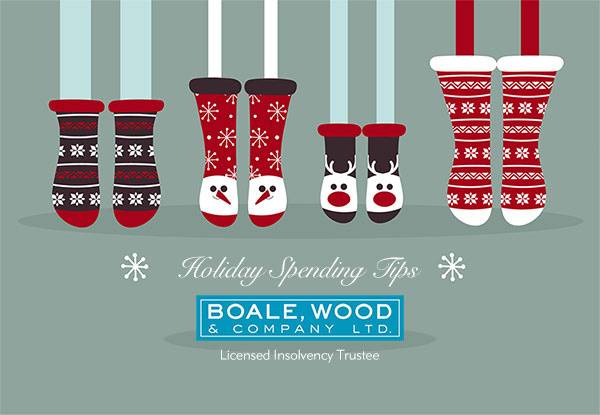“Christmas is the season when you buy this year’s gifts with next year’s money.”
– Author unknown
If you want to avoid a financial hangover that starts in January and lasts for months, — pay cash when Christmas shopping instead of using your credit cards.
Nothing takes the glow off the holiday season like the thud of a credit card bill — or more likely, several of them, just a few weeks into the new year.
Don’t let that ‘perfect gift’ give you a debt hangover that lasts all year long. If you don’t have the cash, you shouldn’t spend it.
Some of the busiest shopping days of the year are right around the corner, but if you go into them without a plan — and the gumption to stick to it amid the madness of a mall — you can easily overextend yourself.
Set a limit and track your spending. Tell yourself “I’m only going to spend (a certain amount)” and once you get to that limit, your shopping is done.
It doesn’t help matters that online commerce is growing by leaps and bounds and that you can’t pay for those items with cash. The ease of buying online makes it likely that the trend in over-spending will continue to rise, and while there are an infinite number of reasons why people get into debt, spending beyond your means is where it all begins. Most Canadians don’t budget going into the holiday season, and this can lead to financial problems.
After the bills have come in and you’ve made it through a month of minimum payments, you may suddenly realize the interest you’re incurring and the debt you have is more than you can handle.
If you’d like to avoid the annual panic to find the money to fund your Christmas plans, you should start planning now for Dec. 25, 2017.
If your seasonal budget is $1,200, set aside $100 per month so when the Christmas mayhem hits, you can have a stress-free holiday.
Don’t let holiday debt ruin your 2017 so early in the New Year. Take positive action by contacting us today!
Contact Boale, Wood & Company Ltd. Licensed Insolvency Trustee. Call us, it’s not too late! (604) 605-3335.
“Never spend your money before you have it.”
-Thomas Jefferson
Here are some suggestions to help make Christmas a little more jolly.
- Make a list and check it twice of what you will need to buy
Unplanned purchases can get anyone into a lot of trouble. It is easy to buy on impulse if we do not have a plan to follow. The lure of a great sale can derail any budget.
Before buying anything, make a list of what you need to buy for each person. Usually a gift that a lot of thought has been put into, will be one that the recipient cherishes, and it is not necessarily the most expensive item. Emotions don’t know price tags, and the best heartfelt gift geared perfectly for your loved one will steer you away from impulse buying.
- Set a budget for each expense
Figure out how much in total you can afford to spend, and then allocate the funds amongst the things you need to buy. If you will be travelling to friends and family over the Holidays, don’t forget to include the cost of travel, lodging and food as part of your overall budget. Then stick to it.
- Start saving early
You should have your total budget figured out early in the year, and then start saving. That way you can afford to purchase either for cash, or if on credit card, you will be able to pay it off in the following month. It is hard to put your hands on a lot of money all at once, but it may be no problem for you to save a little bit each month, ending up with the total you need for when you need to make your purchases.
- Start shopping early
If you set your list and budget early, then you can be looking for the non-perishable items on your list throughout the whole year. This will let you cash in on special sales (Black Friday coms to mind), thereby saving you money. This will keep your holiday spending total as low as possible.
- Don’t disrupt your normal bill paying and savings program throughout the year
Have you ever heard the expression “pay yourself first”? That is the best gift you can give to yourself. Make sure that your year in year out obligations for bill paying and a normal savings program is intact and on budget, before you add more expenses into your budget. Don’t rationalize a break in your normal bill paying and savings program by saying you will play catch up next month. That is a slippery slope and it rarely happens and then you just fall further behind.

